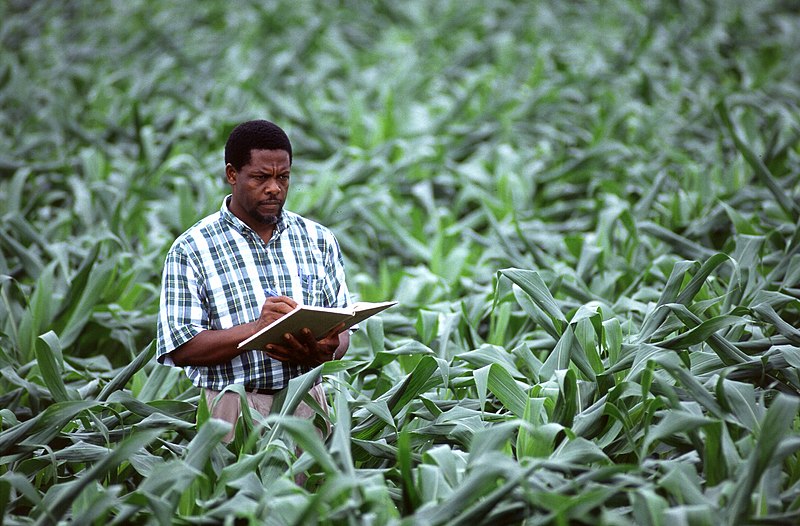How to Apply for Agriculture Finance Online in 2023
Agriculture plays a pivotal role in the global economy, influencing the livelihoods of billions worldwide. From subsistence farming to large-scale agribusinesses, significant investments remain crucial for success. Financing in agriculture, often secured through loans, serves as the necessary capital for equipment, seeds, fertilizers, and operational expenses. This comprehensive guide navigates the complexities of acquiring agricultural financing, catering to both small-scale farmers and large agri-entrepreneurs.

Read more.. How to Keep Your Online Banking Safe and Secure
Read more.. The Best Travel Rewards Credit Cards In 2023
Understanding Agriculture Finance
Delving into the realm of securing agricultural finance requires a fundamental grasp of its definition and significance:
Understanding Agriculture Finance:
This encompasses diverse financial services designed to meet the distinct needs of farmers and agribusinesses. These services span agriculture loan interest rates, crop insurance, equipment leasing, and more, aimed at providing capital to fortify the growth and sustainability of the agricultural sector.

Read more.. How Much Is Renters Insurance? 2023 Rates
Read more.. The Best Pet Insurance Companies in the USA
Importance of Agriculture Finance:
Capital Access: Agriculture finance offers farmers and agribusinesses crucial funds for investments, enabling the purchase of seeds, machinery, fertilizers, and other necessities that enhance productivity.
Risk Management: In the sphere of agriculture finance, insurance products serve as shields, safeguarding farmers against unexpected occurrences like crop failure or natural disasters, mitigating potential financial losses.
Economic Growth: A thriving agricultural sector significantly contributes to economic progress through job creation, income generation, and increased food production.
Food Security: Agriculture finance stands as a cornerstone in upholding food security, empowering farmers to boost yields and meet the needs of a growing global population.
Sustainable Practices: It encourages the adoption of sustainable and environmentally conscious farming techniques by facilitating resources for innovation and advancement.
Steps to Apply for Agriculture Finance Initiating the process of applying for agriculture finance requires a structured approach, whether as an individual farmer or a representative of a larger agricultural enterprise. Here are the essential steps to guide you through the process:

Assess Your Financing
Needs Begin by evaluating your financial requirements for your agricultural project or enterprise. Define the project scope, determine budgets for expenses such as land, equipment, seeds, labor, and prepare for unforeseen circumstances affecting crop yields.
Identify Suitable Lenders
Once you’ve established your financing needs, identify potential lenders specializing in agriculture finance. These may include traditional banks, agricultural development banks, microfinance institutions, cooperative credit societies, online lenders, and government programs. Research and compare their offerings, considering interest rates, terms, and eligibility criteria to find the best match for your financing needs.
Gather Necessary Documentation
Various lenders may require different documents during the application process. However, some commonly requested documents include:
- Proof of Identity: This can be a national ID, passport, or any government-issued identification.
- Ownership Documents: For land purchase or development loans, proof of land ownership or lease agreements is essential.
- Business Plan: A comprehensive business plan detailing the project’s scope, expected returns, and repayment plan is crucial for commercial agricultural projects.
- Financial Statements: Lenders may ask for income statements and balance sheets.
- Credit History: Occasionally, lenders request credit history to assess creditworthiness.
- Collateral Documents: When applying for a secured loan, details about the collateral are necessary.
Ensure all necessary documents are prepared and well-organized, streamlining the application process.
Select Suitable Agriculture Loan Type
Agriculture finance offers various loan types tailored to different agricultural needs, including:
- Crop Loans: Covering expenses related to crop cultivation like seeds, fertilizers, and labor.
- Livestock Loans: Used for purchasing livestock or developing related businesses.
- Machinery and Equipment Loans: For acquiring or upgrading agricultural machinery.
- Land Purchase Loans: Specifically designed for buying land for agricultural purposes.
- Working Capital Loans: Short-term loans for operational costs like labor and maintenance.
Submit Your Application Once your financial needs are assessed
a lender is chosen, and your documentation is prepared, submit your application. This can be done at the lender’s physical branch, website, or online platform if dealing with an online lender. Ensure you complete the application accurately and provide comprehensive information.
- Complete All Sections: Fill out all sections thoroughly, even seemingly optional ones.
- Proofread: Take time to edit for errors in spelling, grammar, and format.
- Meet Deadlines: Adhere to application deadlines to avoid missed opportunities.
- Additional Materials: Submit required materials aligning with application requirements.
- Recommendation Letters: If needed, contact references in advance.
- Payment: Pay required fees using specified methods and keep transaction records.
- Confirmation: Retain confirmation or receipt after submission.
- Follow-Up: Follow up if confirmation isn’t received in a reasonable time.
- Respect Privacy: Share only necessary information.
- Track Progress: Record applications, outcomes, and feedback.
- Stay Positive: Embrace rejections as learning opportunities for growth.





